Elementor Pro vs Free: Is Elementor Pro for WordPress Worth It?
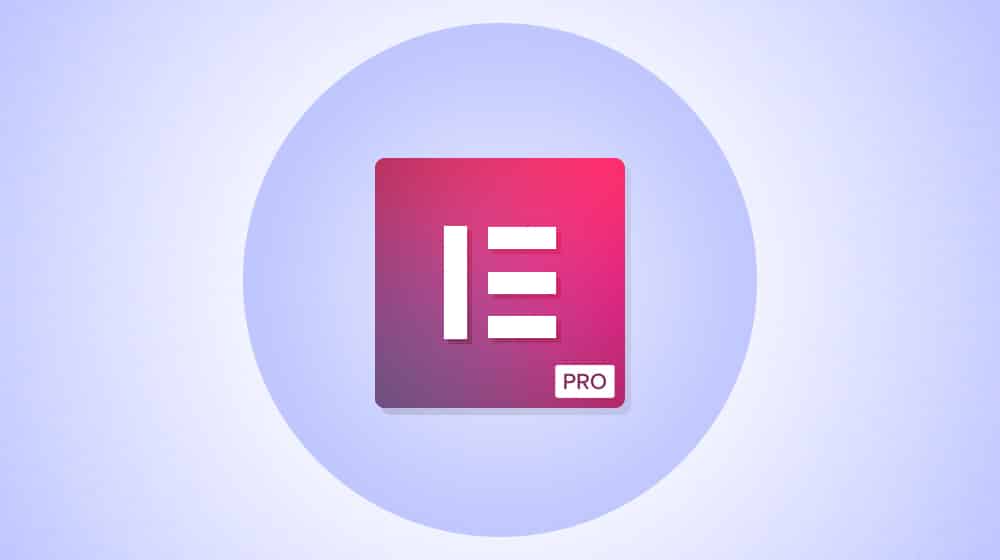
WordPress is a potent tool for building professional websites. Some of the largest brands in the world use a heavily customized version of WordPress, including Sony, CNN, Time, Wired, Disney, and more.
The trouble is, all of that customization and flexibility comes at a cost. WordPress is significantly more massive than it appears on the surface; getting a site up and working the way you want can take forever. It's not really all that beginner-friendly, and while you certainly can stumble your way through it using the massive amounts of documentation and tutorials available, many people want a more straightforward way to get a site up and running.
One of the solutions is to use a drag-and-drop website builder. Website builders like these give you a bunch of modules of various functions and designs and let you piece them together like you're playing with Legos. Some are built into web hosts like GoDaddy, while others are plugins you buy. Even the WordPress core has a native drag and drop builder with the introduction of Gutenberg.
However, the one I'm comparing today is Elementor Free vs Pro.
One question you probably have regarding Elementor is which version you should use. Is the free version good enough? Is the Pro version worth the cost? Let's dig in.
 30 Second Summary
30 Second Summary
You can use Elementor's free version to build basic WordPress sites with 50 widgets, global editing features and 300+ templates. If you upgrade to Pro ($50-$1000/year), you'll get custom CSS, marketing tools, eCommerce features and the ability to add tracking codes. For $100/year, you can get the Cloud Website plan which comes with hosting and security features. Choose the free version if you're on a tight budget, Pro if you need marketing features or Cloud if you want an all-in-one solution that's easy to set up.
All About Elementor's Free Version
First, let's start with the free version of Elementor.
Before digging in, I'll note that it's a "free forever" plan, not a free trial. You don't have to worry about a ticking clock before a bill comes in.
To start with Elementor's free version, you only need to click here to grab it from the WordPress plugin repository. You'll need to sign up, and then you'll be good to go.
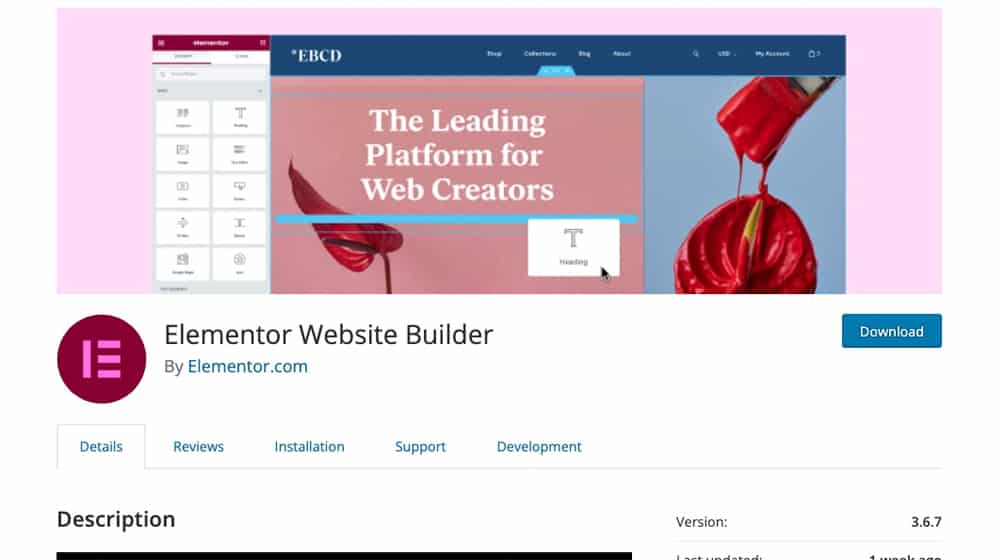
So, what do you get with the free version?
1. First, you get their core feature, which is their drag-and-drop editor. It's a WordPress page builder, after all; you want to be able to build web pages. The page builder is, by default, a responsive design. It also has live WYSIWYG editing, so you can see your website assembled without having to cycle through the uploading and previewing different elements.

2. In particular, they give you access to 50 different widgets, such as animations, layouts and website designs, and functions for marketing and eCommerce. They're also constantly working on adding more widgets; many of the older reviews I see mention 30 widgets, so they've increased that in the last year.
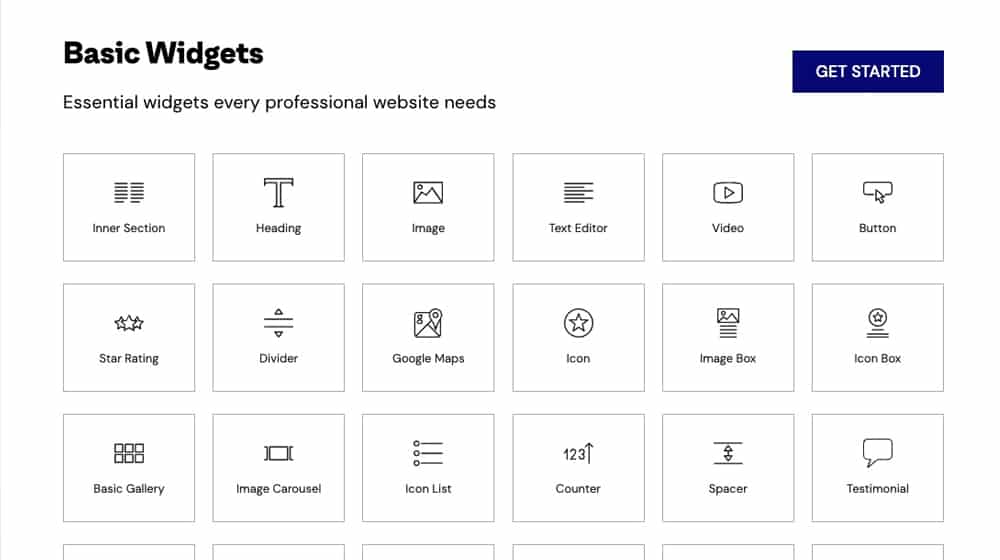
3. One nice feature is global editing. Choices like font and colors/sizing are defined in a central location and applied across your site, so you don't have to go in and edit every widget manually when you want to make a change.
4. If you're lost for where to start, they offer five wireframes, five website kits, and 300+ Elementor templates you can use to build your site from a core structure. Page templates, too, are an area where they're incrementally adding more all the time.

5. In terms of building an online store, you're slightly limited. Many of the more advanced features are gated behind the pro version. Elementor's free version has a landing page builder and integrations with Slack, but that's pretty much it.

6. There is also a range of minor convenience features, like drag-from-desktop file uploading, searchable widgets, marking widgets as favorites, and so on.
Overall, it's a reasonably robust page builder for something you get completely free.
Upgrading to Elementor Pro
Here are some of the features of Elementor Pro that you'll unlock when you sign up for their annual plans:
1. First, you get your theme builder. The theme builder allows you to make a custom WordPress themes that you can use for different pages instead of needing to rebuild it every time or pick and customize an existing template. It just gives you more flexibility.
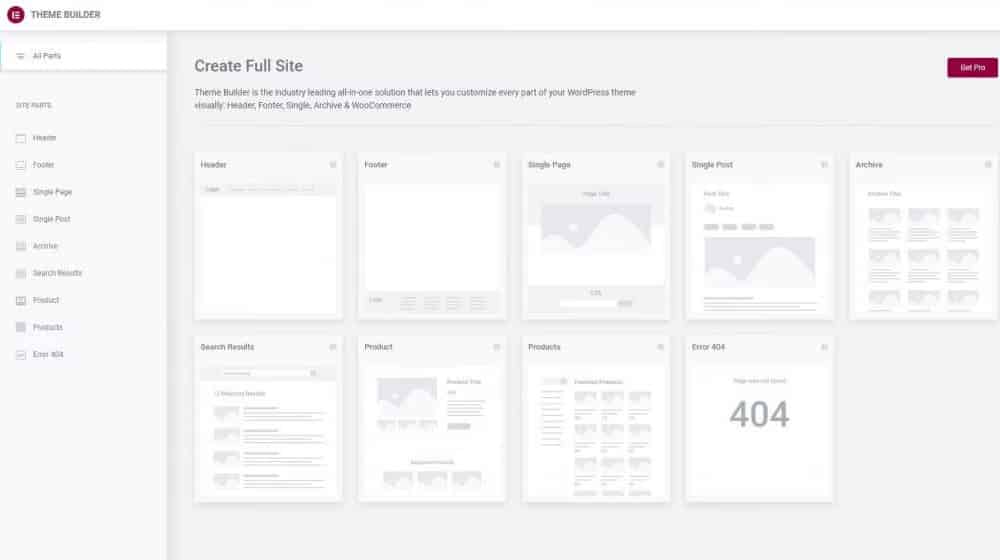
2. You also get even more of what Free gets you. There are over 100 global widgets, ten wireframes, 80+ website kits, and even more pro templates to choose from. You have more flexibility, more options, more pro widgets, and more features.
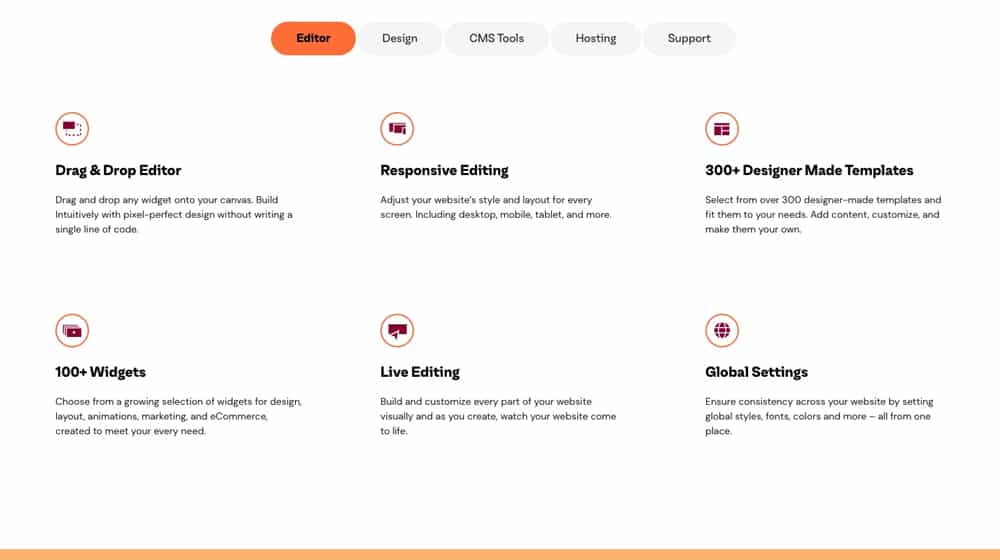
3. Custom CSS is one of the more essential aspects of Pro that you don't get with Free. CSS is so vital to the look and feel of your site, and it's necessary. Locking down custom CSS is one of the main reasons I would recommend Pro over Free if we're being honest, but even then, there are
4. For eCommerce, you get a lot more features with Pro. You get:
- A WooCommerce page builder if you're using WooCommerce to manage your commerce side.
- A form builder, so you can build lead gen and contact forms into your landing pages and product pages.
- The ability to use dynamic content for personalization purposes.
- A pop-up builder for those pop-over/lightbox call to actions you see everywhere.
5. You also get even more integrations. These include mail managers like Mailchimp, ActiveCampaign, ConvertKit, and other systems like HubSpot, Zapier, Discord, the Google Maps API, and the Facebook SDK.
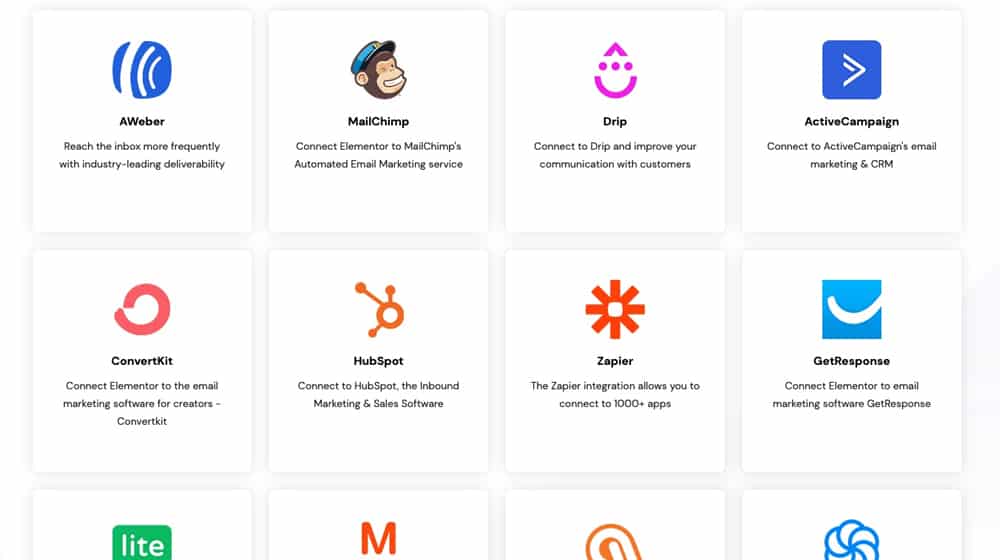
6. There's also a team feature if you're not working alone; you can leave notes in your page builder for others to know what you did and why.
7. Finally, but critically, Pro allows you to add custom code. Why is this critical? Custom code includes tracking code like the Facebook pixel or Google Analytics in your header, as well as HTML meta tags, including Schema - this is all stuff that is essential for a modern website, in my opinion.

There are five different Pro versions of Elementor, by the way. I've saved them for a footnote because the only differences between them are:
- Their pricing table lists their current rates at $50, $100, $200, $500, and $1,000 per year.
- The number of WordPress websites you can use it on are 1, 3, 5, 100, and 1,000, respectively.
- Support; the three cheaper plans are "Premium support" while the expensive plans are "VIP support."
- Available website kits; the cheapest plan is a smaller selection, while the others have "expert kits" available.
- An "Elementor Expert Profile," which is basically a freelancer portal for Elementor designers to showcase their work and get hired to design sites for other people. The Expert Profile is available at the $200 plan and up.
That's pretty much it, though, so it works out to be primarily a volume license thing.
What About the Elementor Cloud Website Plan?
Elementor also offers another kind of plan: a cloud website package.
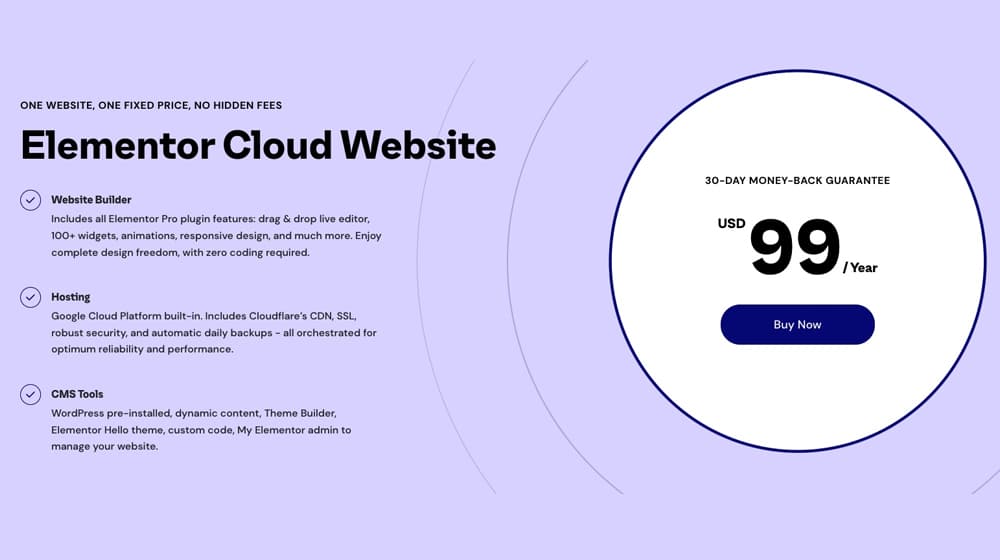
Elementor Cloud Website costs $100 annually and has a 30-day money-back guarantee but no free trial. It's hosted on Google's cloud platform and uses Cloudflare as a CDN. It also gives you an SSL certificate for site security, anti-hacking and anti-spam features, daily automatic backups, and all of the features of the Pro plans listed above.
Elementor also allows you to link up a custom domain if you want. You're given an "Elementor.cloud" subdomain for free, but a custom domain add-on is always a good idea. Registering a domain will almost always outperform a subdomain.
One downside is that Elementor does have limits on bandwidth and usage for their hosted plan. They give you 100GB bandwidth (presumably monthly, though they don't specify on their landing page), 20GB of storage, and up to 100k unique monthly visits. That's all pretty reasonable for a beginner site, except maybe the storage limit if you intend to post a lot of heavy media like images or videos.
Which Option is Best for You?
As you might anticipate, you can choose which plan works best for you, and there's no single "right" answer. That said, I'll help define which plan is best for which situation if I can. You can always contact them for a consultation, though I imagine they'll try to sell you on the pro plan if they can.
1. If you have a budget but no skills, go with the hosted Pro Cloud version.
I know people out there are basically scared of code, and I don't blame them. It's a massive industry with a trillion things to learn, and it can be frustrating to break something or get stuck with a half-built page. For me, that's part of the thrill of it. I love tweaking lines of code, breaking things, fixing them, and having something that works better than before. A lot of people find that stressful.
If you want a website that "Just Works" and is easy to put together and get up and running, Elementor's cloud version is pretty good. You can get similar results from other website builders or from using something like Squarespace, but if you want to stick with WordPress, Elementor is a good option.

I also like that the pro/hosted version of Elementor is an excellent way to dip your toes into more custom code. You don't need to interact with custom CSS or scripts, but you can when you feel comfortable doing it.
The only tricky part is if you want to migrate away later, you will need to do a complete rebuild. You can export Elementor builds and import them on your custom hosting, but there's no easy way to move away from Elementor entirely.
2. If you have little or no budget, stick with the free plugin.
Hosting a website can be expensive, or it can be very cheap. It costs something like $10 a year for a basic domain name and $50-100 a year for a WordPress hosting package. You can have a functional website – even one capable of making you money – for about $70 a year. Then, grab free plugins like Elementor, and you can be up and running in short order, with no further investment necessary.
If you can't afford to rent a web host, you're stuck with something like WordPress.com, and that's not going to let you use Elementor, so this discussion is moot.
3. If you intend to dive head-first into marketing, go with the pro plan.
I know; marketing and coding are pretty intertwined, so why would you go with a page builder in the first place? Well, it can save time, which can be pretty valuable. I like to get to as close to perfect as possible, but many people get to the "better than 85% of people out there" point, and that's frankly good enough.
Elementor Pro is required if you want to do marketing, though. It would be best if you had the custom CSS and, more importantly, custom code features and things like the form builder. Without those Pro features, you'll have to replace them with other free plugins for that functionality.
I think you'd probably be better off learning the basics of WordPress and rocking a template and suite of plugins instead, but that's your choice. I won't tell you that you're wrong for using Elementor; it's popular and powerful.
4. If you're an agency and want to set up sites for clients, get the larger pro plans.
If you're running an agency and want to use a page builder to set up relatively basic websites for your clients, Elementor Pro is required. The free version could be used if you had each client register it and then hand you the information, but that's hacky and a security issue. Instead, buy one of the pro versions to account for the number of site licenses you need and use team role management to run them.
The Verdict
So, is it worth it to upgrade from Elementor to Elementor Pro?
In my opinion, if you're a big fan of Elementor Free and the features and price point is appealing to you, it may be worth it for you to try out Elementor Pro.
I'm not the biggest fan of Elementor overall since it's a bit slow and clunky and ends up with sloppy code. For a fast site, Oxygen Builder is a much better option, and the one-time purchase is much more appealing than a lifetime fee that you'll have to pay every year. Your website will be faster, perform better, and you'll have the best of both worlds.
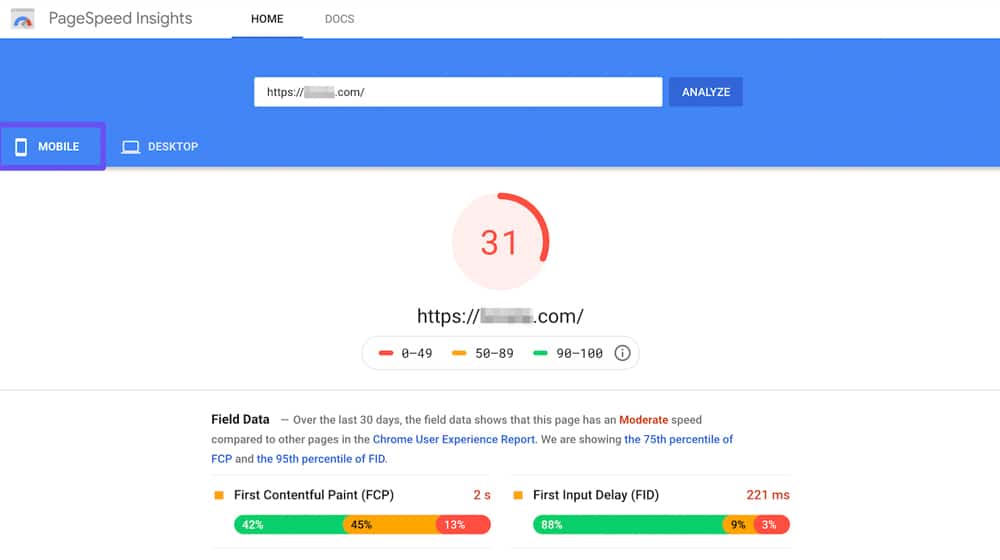
Elementor has been putting more work into performance, but they still have a long way to go, even in 2022.
If you have more specific questions or a situation that doesn't fall under one of these, feel free to let me know in the comments, and I'll give you my recommendation!



 30 Second Summary
30 Second Summary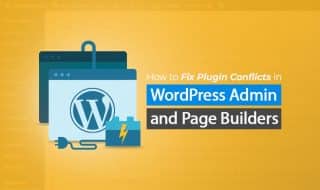



September 14, 2022
The custom code for Pro is what clinched it for me! Awesome feature.
October 07, 2022
Thanks for sharing with us! Glad it's working out for you.